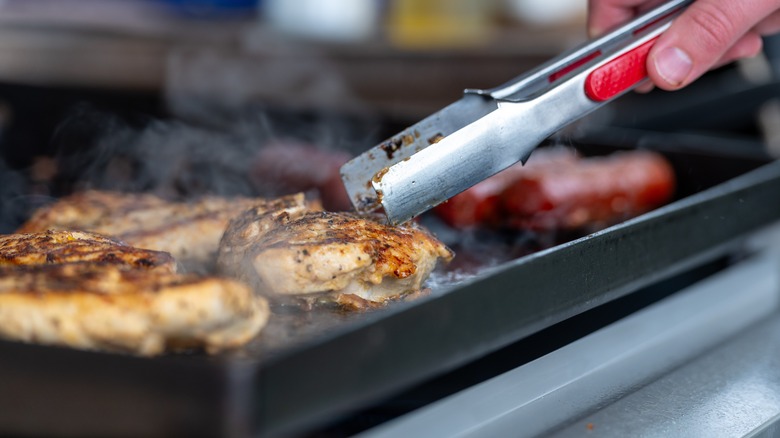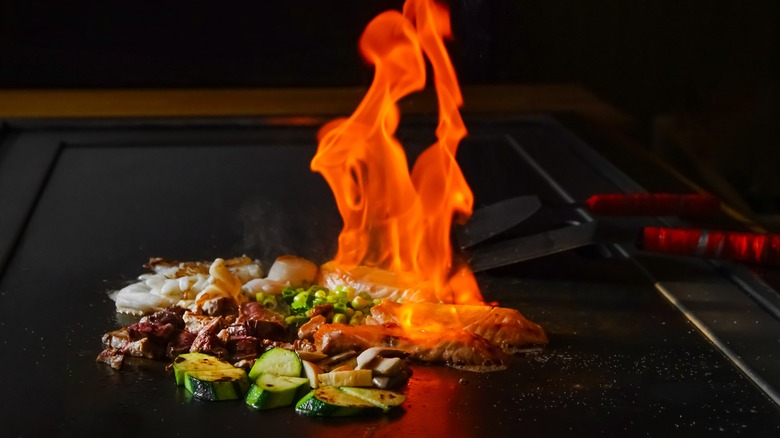The Best Oil To Use When Making Hibachi At Home On A Blackstone
A Blackstone is a great way to make hibachi at home, but using the wrong oil can sabotage your efforts. To find the best oil, we turned to Chef Steve of Chef Steve Creations, an expert in catering and hibachi. "The best oil to use on a Blackstone is one with a high smoke point, such as grapeseed, canola, and avocado," he says. "I prefer using avocado oil because it helps prevent burning and sticking when cooking at high heat."
The word "hibachi" means "fire bowl" in Japanese. It's aptly named, as the center of a hibachi cooking surface reaches 450 degrees Fahrenheit at its peak. Using an oil with a lower smoke point may cause it to burn, which Chef Steve says can sabotage your dinner. "One of the worst oils to use is olive oil since it has a low smoke point," he says. "And, using burnt oil or butter can impact your food by giving it a bitter taste."
Hibachi is all about precision timing, so you don't want the extra headache of worrying about your oil. However, experimentation is part of learning any new form of cooking, an idea that Chef Steve encourages. "Other oils have high smoke points, but it's best to test them out and see which one works for you," he says. Figuring out exactly what kind of oil you like and the best way to apply it to a Blackstone requires a bit of research and plenty of trial and error.
How to use hibachi oils on a Blackstone
Different oils require different applications and may produce different tastes. You'll need to keep in mind what you're cooking, at what temperature you're cooking it, and who you're serving it to. "Some oils have distinct flavors that can affect the taste of your food," Chef Steve says. "Also, watch out for common allergens, like peanuts in peanut oil, which might limit who can enjoy your cooking."
If you've ever been to a hibachi restaurant, particularly a place offering teppanyaki, you've probably noticed that the chef applies oil directly to the grill. It may look like they're using a lot, but it's because of the sheer quantity of food they have to make at once. For a simple backyard grilling for four or fewer people, you won't need nearly as much. If you feel uncomfortable eyeballing the amount, try dabbing some oil on the grill or brushing a fine layer over the whole surface.
If you're still worried, you can always toss your ingredients with oil beforehand. This may not be as entertaining as watching a Benihana chef's tricks, but it gets the job done and ensures an even coating over each individual ingredient. You don't have to light onion volcanos or flip shrimp into people's mouths the first time you use a Blackstone. Start by learning some chef-approved tips for cooking on a Blackstone and continue your education as you become a fledgling teppanyaki cook.


